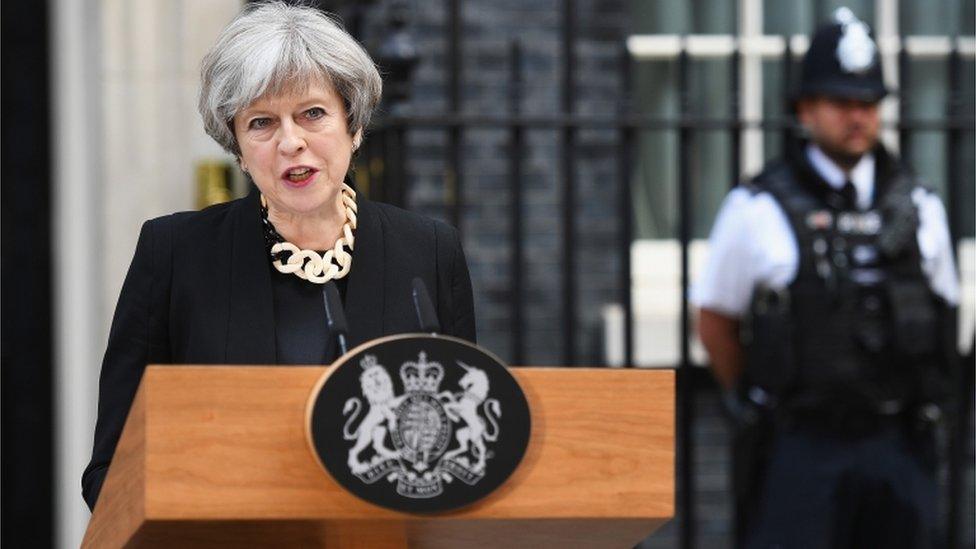How terror attacks affect elections
- Published
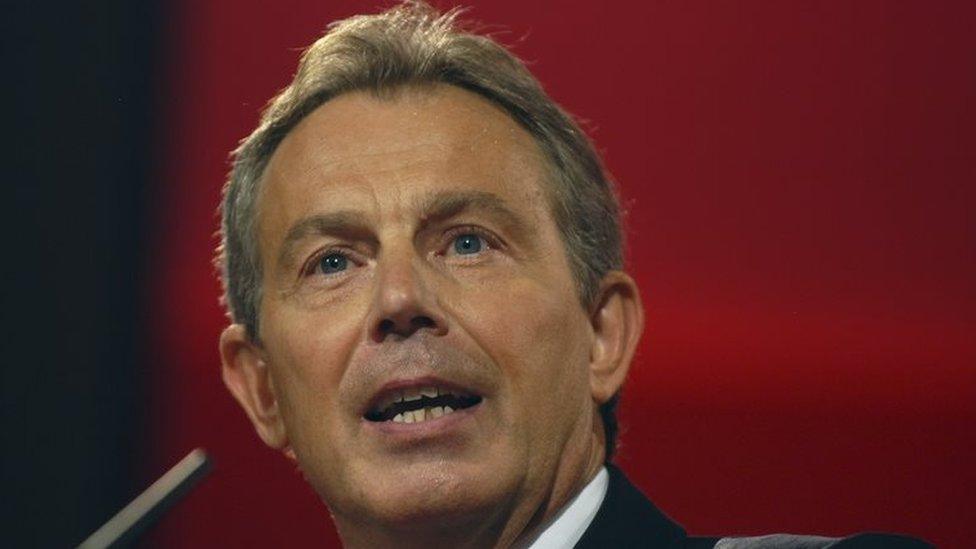
Tony Blair unveiled a 12 point plan to deal with the terror threat
After the bomb attacks on London in July 2005, Tony Blair summoned the media to Downing Street for a news conference.
"The rules of the game are changing," the prime minister declared.
And he launched a 12-point plan, external of tough measures to deal with the threat of terrorism. I can remember writing them all down in my notebook and wondering when this bewildering list of policies was going to end.
Chaos ensued. Opposition parties protested they had not been consulted. The then Labour chairman of the Home Affairs Select Committee dismissed the policies as "half-baked".
And Mr Blair went on holiday leaving his Home Secretary, Charles Clarke, to pick up the pieces.
Day after day, there were emergency news conferences as the policies were clarified, rewritten and embellished.
Some were quietly forgotten - such as new powers to close mosques - and others provoked divisive parliamentary battles, such as allowing the police 90 days to detain terror suspects without charge.
Lessons for May
The attacks transformed the politics of the summer.
But the key point is this: Mr Blair had already won his third election in May with a healthy majority of 66.
In contrast, Theresa May is dealing with her terrorism while the election campaign is still going on.
For the prime minister, there are several lessons she could take from the experience of her Labour predecessor.
Anti-terror laws made up on the hoof in the heat of the moment are not always the best ones.
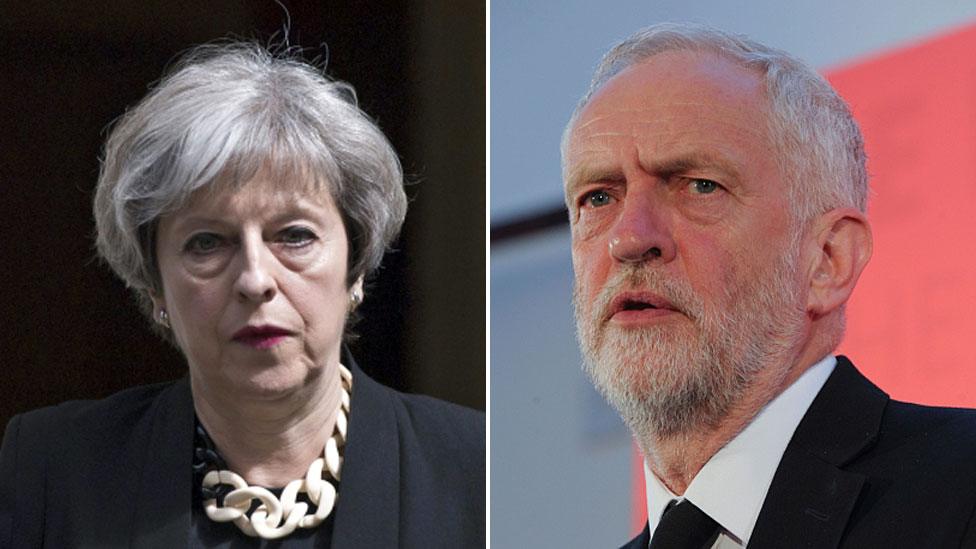
And laws do not always help. Since 2000, there has also been a lot of counter-terrorism legislation passed by Parliament and yet the threat is still there and very real.
Yet Mrs May clearly felt the need to say something in Downing Street in response to the London Bridge attack that went beyond the usual condemnation of the violence, sympathy for the victims and their families and praise for the security forces.
The fact that she announced some policy prescriptions showed that, in her mind, the need to be seen to being doing something outweighed the inevitable criticism of politicising the reaction to the incident. And, of course, a four-point plan was better than Mr Blair's 12.
This was a recognition by the prime minister that security is now a significant issue in this election. Long after the rows of this campaign are over the government that is elected will still be facing the threat of Islamist terrorism.
Where once the last few days of the election might have been focused on Brexit or tax or spending, much time and space will now be devoted to police numbers, intelligence capacity and extremist ideology.
It is a political truism that security issues tend to favour the incumbent, allowing the prime minister of the day to look and be prime ministerial.
It lifts them temporarily from the petty partisan point-scoring to the Olympian heights of statesmanship and all that a Downing Street podium can confer upon them.
In times of uncertainty, the status quo looks attractive. As Belloc rhymed, "Always keep a-hold of nurse for fear of finding something worse".
Yet for Mrs May this is a double-edged sword.
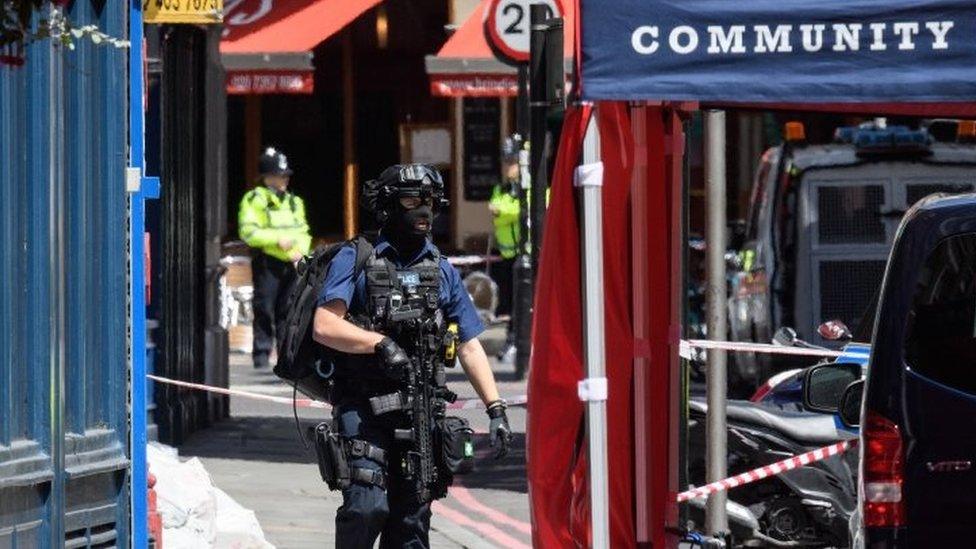
Her security background gives her the experience and knowledge to sound convincing and credible on counter-terrorism. Yet it also gives her opponents a record to attack and ask what on earth she has been doing as home secretary over the past seven years to tackle the threat. Has she, for example, been increasing or cutting police budgets?
Security is also double-edged for Jeremy Corbyn. These attacks have allowed his opponents to revive past comments revealing his reluctance to use armed force, to accuse him of consorting with members of the IRA, and to remind voters of his opposition to many counter-terrorism laws.
But the issue also allows the Labour leader to surprise voters with a counterintuitive promise to give the police full authority to use force.
It also gives him space to question some of Britain's alliances with countries in the Middle East from where some Islamist ideology originated.
The truth is that the impact of such incidents on elections is not straightforward.
Just one issue
In Israel, for instance, what are considered to be terror attacks tend to favour parties of the right over parties of the left.
But the evidence elsewhere appears inconsistent and sketchy.
The terror attack in Paris this April did not help the Front National leader, Marine Le Pen.
But in Spain in 2004, the attack on Madrid's commuter trains that killed 192 people - just three days before polling - did not help save the ruling centre-right Popular Party from defeat.
The bottom line, perhaps, is that many voters in Britain will have seen terrorism before.
And they will see it as just one issue among many on which they can base their vote.
They also know that elections are about choosing a government for potentially five years and knee-jerk decisions are not always best for the long-term.
- Published4 June 2017
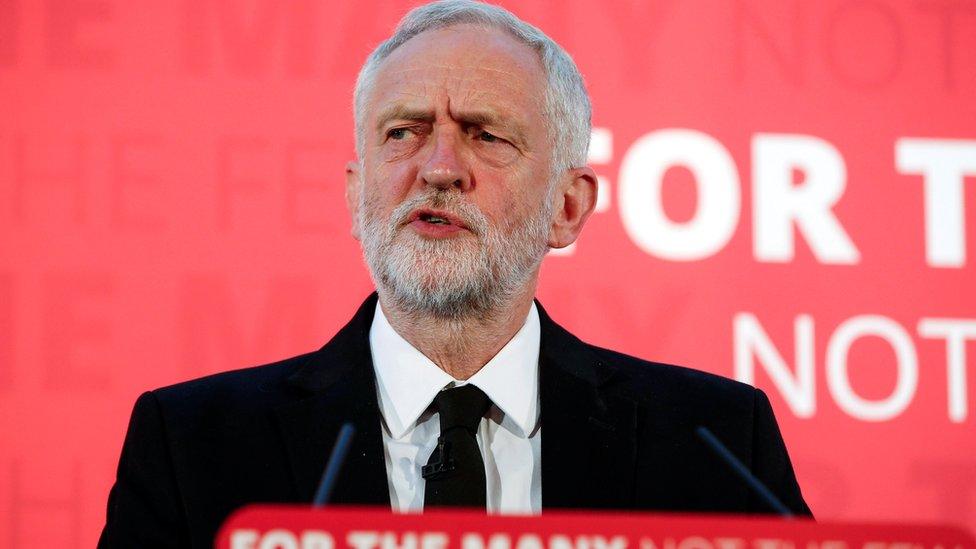
- Published4 June 2017
